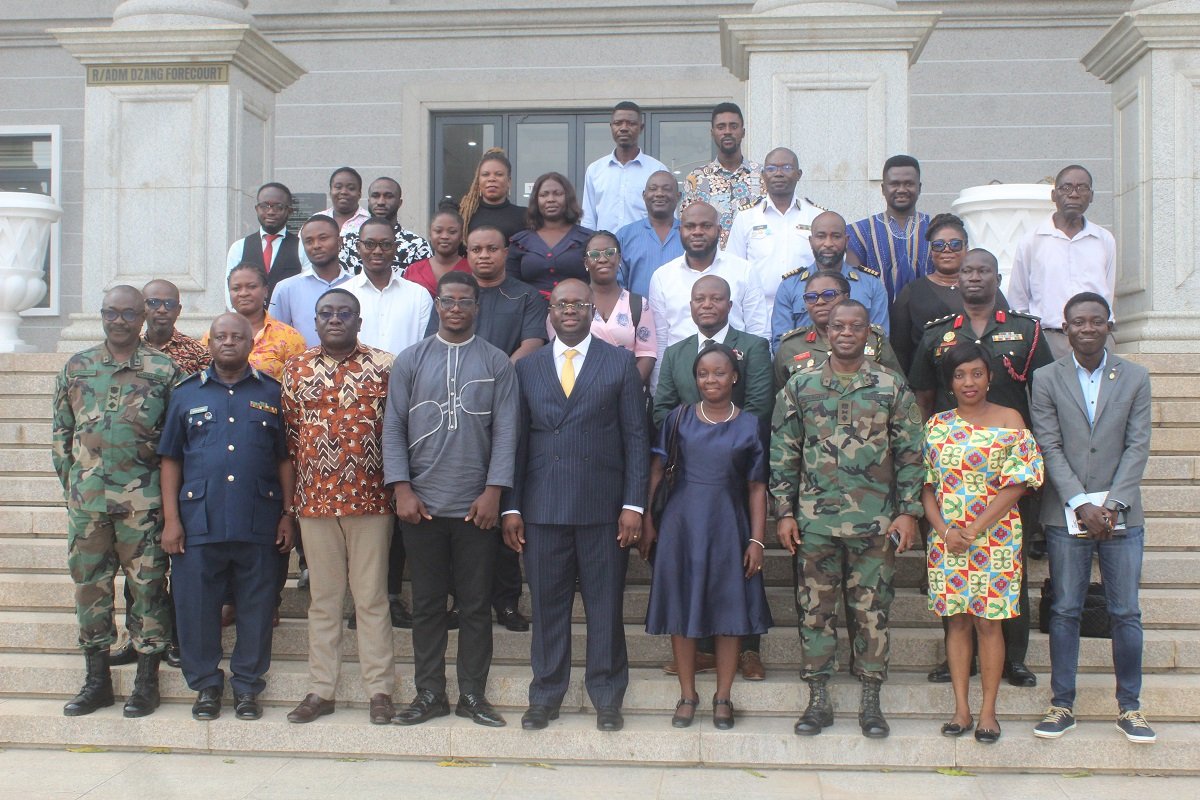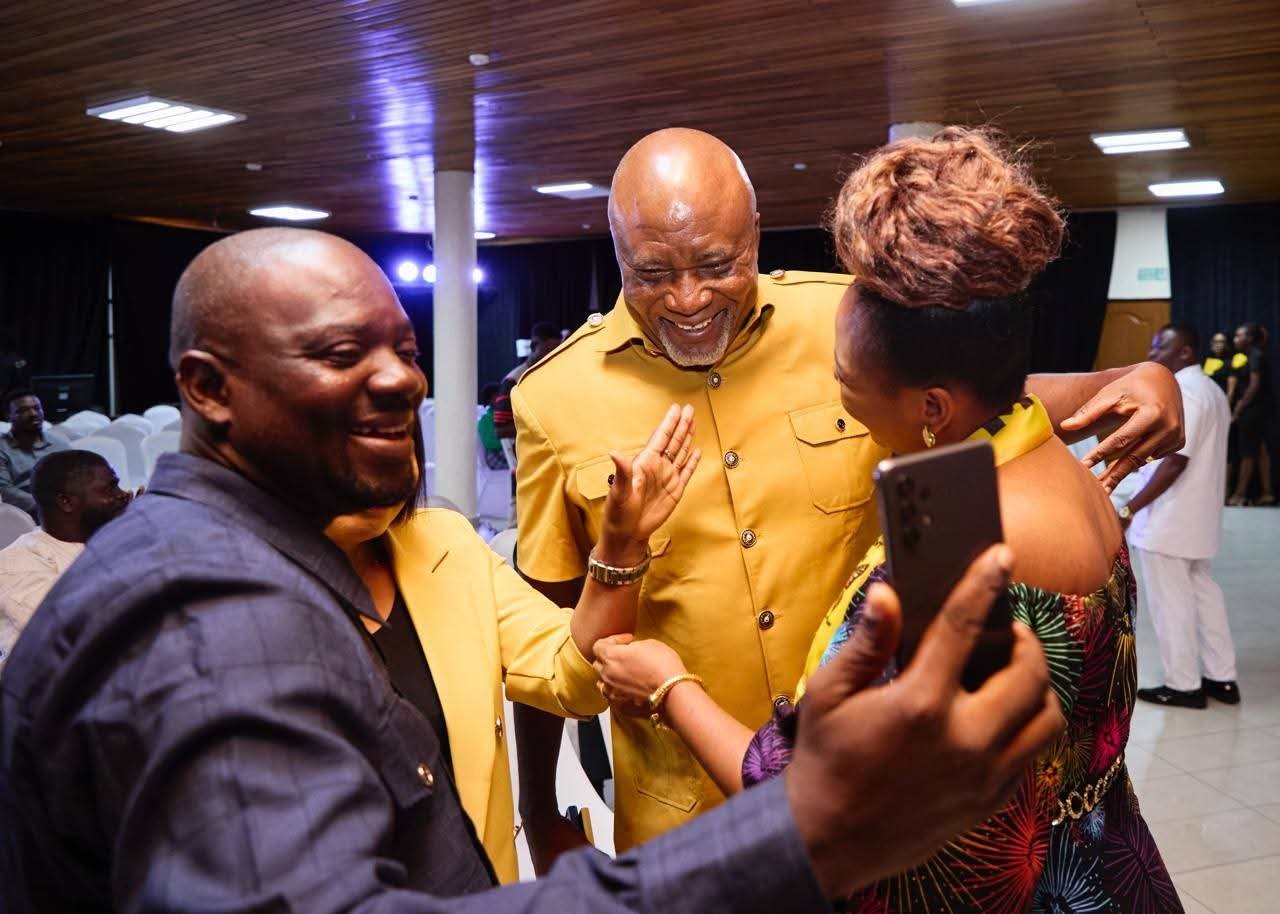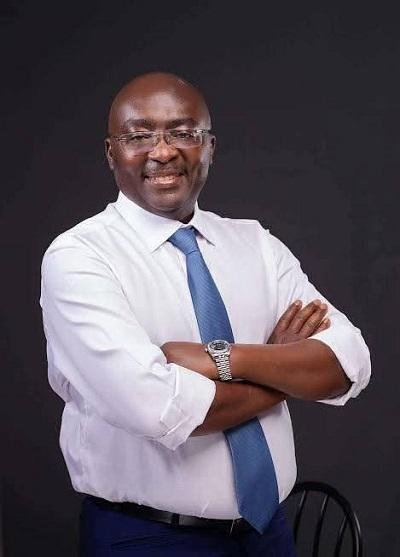News
Recognise, appreciate sacrifice of GAF, key reason for nation’s peace, stability —Defence Minister

The Defence Minister, Dr Edward Omane Boamah, has called on Ghanaians to recognise and appreciate the sacrifices of the Ghana Armed Forces (GAF), emphasising that their dedication is the key reason for the nation’s peace and stability.
Dr Boamah made the remarks during his maiden interaction with members of the Defence Press Corps (DPC) in Accra on Monday.
The Defence Minister urged Ghanaians to support and respect the Armed Forces, highlighting their contributions beyond combat roles. He cited instances where military engineers have provided rapid solutions to infrastructure challenges, such as bridge construction for isolated communities.
“Our soldiers work tirelessly, often behind the scenes, to ensure national security. Their role in disaster response, peacekeeping, and infrastructure development must be recognised and appreciated,” Dr Boamah added.
The Minister also highlighted the government’s resolve to complete all ongoing military infrastructure projects, some of which dates back to 2010.
He stressed the need to cultivate a culture of finishing existing projects before embarking on new ones, noting that proper financing should always be secured to prevent project abandonment.
“We must learn to complete projects as much as possible. When financing is unclear, projects remain unfinished, which should not be the case,” Dr Boamah stated.
He also mentioned innovative financing strategies, including leveraging climate funds for infrastructure projects that contribute to environmental sustainability, such as transitioning to energy-efficient lighting systems in military installations.
Addressing the housing deficit within the armed forces, Dr Boamah disclosed that the military requires about 17,000 additional housing units. He discussed various strategies, including potential public-private partnerships (PPPs) and mixed housing models, where some personnel may be deliberately integrated into civilian communities to enhance security while maintaining a strong presence in the barracks.
“There are advantages when security personnel live among civilians, as it deters crime. However, we must also maintain a significant standby force within the barracks to ensure rapid deployment when necessary,” he explained.
Dr Boamah expressed concern over the devastating effects of illegal mining (galamsey) on Ghana’s environment, particularly water bodies. He revealed that pollution levels in some areas have reached unprecedented levels, making water treatment extremely difficult.
“The Ghana Armed Forces is ready and willing to assist the government in addressing environmental challenges. We need a collective effort to combat the illegal mining menace,” he said.
By Jemima Esinam Kuatsinu
News
Hopeson Adorye invites Ghanaians to join new United Party

A leading member of the newly rebranded United Party, also known as UP, Hopeson Adorye, has called on Ghanaians who feel dejected or oppressed in politics to join the new party, describing it as a better political home for all.
He made these remarks at the launch and rebranding of the Movement for Change into the United Party (UP) at the Coconut Grove Hotel in Accra on Thursday, October 16.
Mr. Adorye explained that the party was fully ready to serve as an alternative political force to address Ghana’s challenges.
He noted that the UP leadership was focused and determined to change the country’s political structure and bring meaningful transformation.
He stated that the party’s vision was to build a united Ghana, stressing that without unity, the nation could not make real progress.
According to him, the mission of the UP was to create a prosperous country where every citizen could provide for themselves and their families.
Mr. Adorye emphasised that the new party was not formed to destroy any existing political organization but to contest and win elections to bring about the needed change.
He expressed confidence that many Ghanaians from different political backgrounds, including those dissatisfied with their current parties, would join UP+ because of its values and inclusive ideology.
He added that the party was building its structures from the grassroots and hoped to complete them by the end of the year as part of efforts to strengthen its national presence.
The Founder of the United Party (UP), Alan Kwadwo Kyerematen, also addressed the gathering and reflected on the transformation of the Movement for Change into the UP+.
He explained that the rebranding marked a new phase of political renewal, symbolized by the monarch butterfly in the party’s logo, which represents transformation, resilience, and endurance.
Mr. Kyerematen noted that the colors of the party yellow, black, and white stood for Ghana’s gold resources, the black star of Africa, and purity, respectively.
He stated that the UP stands for ethical leadership, integrity, and unity, adding that many of its members entered politics to serve the nation, not for personal gain.
He revealed that the party’s Great Transformational Plan (GTP), which has received global recognition, would guide the UP+ government when elected.
“The plan is designed to stabilize the economy, reduce the national debt, and promote industrial growth through ten strategic anchor industries” he added.
He explained that the health policy would emphasize preventive care, community-based services, and the inclusion of traditional and herbal medicine, which many Ghanaians rely on.
Mr. Kyerematen further stated that the UP would promote a strong Pan African agenda, explaining that Ghana’s prosperity must be tied to the wellbeing of the entire continent.
He noted that the party believes in Ghana first, and its policies were anchored on uniting the country and restoring hope in national development.
By: Jacob Aggrey
News
Dr. Bawumia urges NPP members to rally behind his flagbearership bid

Flagbearer hopeful of the New Patriotic Party, Dr. Mahamudu Bawumia, has appealed to the rank and file of the party to rally behind him as he prepares to lead the party in the 2028 elections.
Addressing delegates in Sene East during his campaign tour, he highlighted key contributions to the party.
He revealed that at the behest of former president, Nana Addo Dankwa Akufo-Addo, he left his job at the Bank of Ghana to work for the NPP.
According to him, many asked him to rescind the decision. However, because of his loyalty to the party, he resigned from the bank to be their running mate.
He added that at the African Development Bank, he resigned in 2012 just to serve the party at the highest level.
“I defended the party in 2012. We lost, but I stayed in Ghana to put pressure on John Dramani Mahama and the NDC,” he added.
He is therefore urging the party to choose continuity and to back his leadership.
By: Jacob Aggrey

 Profile6 days ago
Profile6 days agoAlbert Litela Obidiaba: The artist who wove Ghana’s soul into the King’s Baton

 News6 days ago
News6 days agoDaddy Lumba’s wife, children run to court to injunct December 6 funeral arrangements

 News1 week ago
News1 week agoPresident Mahama to meet Auditor-General, Chief Justice and Attorney-General over misuse of public funds






